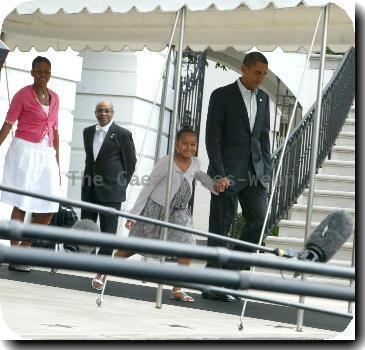Clinton says situation in Yemen has global security implications
By Matthew Lee, APMonday, January 4, 2010
Clinton: Yemen poses global risk
WASHINGTON — Secretary of State Hillary Rodham Clinton said Monday that internal unrest and a surge in al-Qaida activity in Yemen pose a “global” threat that is being met by U.S. support for the Yemeni government’s efforts to fight extremists.
Clinton said the situation in Yemen created risks far beyond its region and that the government in San’a must act to restore stability. Her comments came as the U.S. Embassy in Yemen was closed for a second day due to al-Qaida threats and ahead of an international conference on Yemen to be held later this month in London.
“Obviously, we see global implications from the war in Yemen and the ongoing efforts by al-Qaida in Yemen to use it as a base for terrorist attacks far beyond the region,” she told reporters at a State Department news conference with Qatari Prime Minister Hamad Bin Jassim Jabr al-Thani.
Clinton praised the Yemeni government for recent steps it has taken to combat extremists but said that at the London conference the United States and its allies will tell the Yemeni government that there are “expectations and conditions” it must meet for it to continue to enjoy support from the West.
“We’re going to listen and consult with those who have long experience in Yemen, such as Qatar does … and work together to try to encourage the government to take steps that will lead to a more lasting period of peace and stability,” she said.
“There have been numerous conflicts in Yemen and they seem to just get worse and worse with more players involved now,” Clinton said. “It’s time for the international community to make it clear to Yemen that there are expectations and conditions on our continuing support for the government so that they can take actions which will have a better chance to provide peace and stability in that region.”
Earlier Monday, Yemeni security forces killed two suspected al-Qaida militants in clashes northeast of the capital where the government last month carried out raids against an al-Qaida cell it said was plotting attacks against foreign interests, possibly including embassies. In that Dec. 17 raid, officials said four would-be suicide bombers were killed.
Yemen has raided a number of al-Qaida hideouts in the past month, part of an intensified effort — backed by the United States — to stamp out the terror group’s growing presence in this impoverished, fragmented nation at the southern tip of the Arabian Peninsula.
The United States believes al-Qaida’s offshoot in Yemen, al-Qaida in the Arabian Peninsula, which has several hundred members, was behind the failed attempt to bomb a U.S. airliner heading to Detroit on Christmas.
President Barack Obama’s top counterterrorism adviser, John Brennan, said Sunday that the U.S. wants to give the Yemeni government with “the wherewithal” to take down al-Qaida, but stressed that the administration was not currently planning on sending U.S. troops.
Yemen has pledged to clamp down on militancy, but government control is weak outside the capital and the country has a history of freeing some alleged militants and tolerating others. The government is also besieged by other mounting crises: a war in the north with Shiite rebels, separatist unrest in the south, and increasing poverty among the population of 22 million.
Tags: Barack Obama, Christmas, Embassies, Middle East, National Security, North America, Qatar, Terrorism, United States, Washington, Yemen

